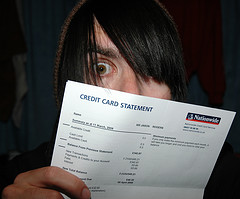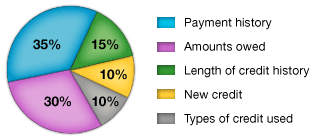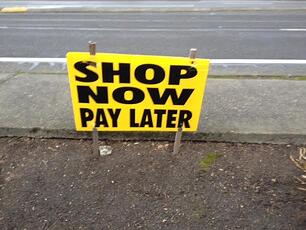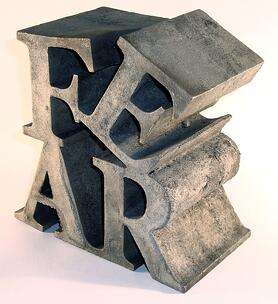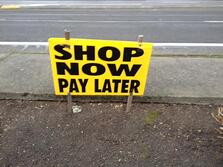Too much credit card and other unsecured debt? Not able to keep up with the payments? You may be a prospect for Debt Settlement.
But, before you decide, consider the following:
Debt Settlement is a very effective program to help people settle unsecured debts for less than the total balance due.
- The unsecured debts I'm talking about are:
- Credit Cards
- Store Cards
- Home Shopping Club accounts or cards
- Personal Loans
- Repossession Deficiency Judgments
- Medical Bills
- Personal Student Loans (although there are programs to help on Federal Student Loans as well)
When faced with too much debt and not enough income or cash flow to keep up with at least the minimum payments due, there are only a few options to keep the debt collectors at bay:
A Debt Management Program
A Debt Management Program used to be called a "Credit Counseling Program" and sometimes it is still called by that name. In a Debt Management or Credit Counseling Program, a person signs up with a "non-profit" (only for taxable reasons, YES, you will be paying fees!), and they will have set up a program with each of your creditors.
Usually, the interest rates are reduced or sometimes eliminated, late fees and over-the-limit fees are usually forgiven after you have made a few payments, and your account is now classified as being paid as agreed or on time.
However, the problem with a Debt Management or Credit Counseling Program is that there is very little forgiveness if you miss or are late on a payment! I've seen people who had been consistent for many months, and then, due to an emergency, just couldn't come up with the total due that month. The Debt Management Program was canceled or voided and they were back to square one!
Also, in a Debt Management or Credit Counseling Program, the total monthly payment may be more that the total minimum monthly payment you are required to make now! And, the company is charging you a monthly service fee as well!
So, if you go through the process of trying to enroll in a Debt Management Program and find out you cannot qualify, what now?
A Debt Acceleration Program
A Debt Acceleration Program (sometimes referred to as a Debt Snowball Plan) is perfect for someone who is making the minimum monthly payments on each of their debts and yet, due to high interest rates and annual fees, realize that at this rate, it will take 15-20 years to pay off those debts!
A person who should look into a Debt Acceleration Program also could add another $100 - $200 each month to help reduce or accelerate paying off these debts.
Most people in a Debt Acceleration Program are DEBT FREE in 48-60 months, saving thousands of dollars in interest and fees!
I prefer the Debt Acceleration Program to a Debt Management or Credit Counseling Program because as far as your credit report is concerned, you were a very consistent debtor and not only paid all of your payments on time, but actually did so sooner than required!
OK, but what if you are one of so many people that due to:
- Job loss
- Divorce
- Disability
- Death of loved one
- Major Financial Emergency
...just cannot meet the total minimum payments due on your unsecured accounts and cannot qualify for a Debt Management or Debt Acceleration Program?
Then, you should consider a:
Debt Settlement Program
Debt Settlement is designed for people who have a severe financial hardship, have tried to keep up with all of the bills, but some or all of their credit card accounts and other unsecured debts have been turned over to debt collectors.
These debt collectors are calling all day and even harassing you at work. But, before I explain how a Debt Settlement Program works and could help you, here's how to put a stop to those collection calls:
In a Debt Settlement Program, you will go through a thorough financial overview to determine several things, such as:
- Type of employment (self or W-2)
- Basic Monthly Budget
- Retirement status
- Type of income you are receiving (disability, social security, unemployment, etc.)
- Assets (mainly do you have equity in your home)
- Are you renting?
Once you know where you stand, you will have an amount (that you can afford) deposited into your Debt Settlement Reserve Account (FDIC insured bank) monthly.
The Debt Settlement company will be contacting your creditors and/or debt collectors to arrange settlements. As you reserve account grows, each of your accounts should be settled for much less than the total balance due.
But finally, what if you just are barely making ends meet on your basic bills and have little or nothing left over to put towards a Debt Settlement Program?
Then, you should consider:
A Bankruptcy Program
There are basically two types of Bankruptcy Programs for individuals:
- Chapter 7
- Chapter 13
The Chapter 7 is not used as much these days as it is basically designed for someone to liquidate any assets they have (obviously, not very much) and that small amount is paid to each creditor, and the balances of your debts are "forgiven".
In a Chapter 13, a bankruptcy attorney will present a type of repayment plan to the bankrutpcy court based on your financial status. Usually, a person will be making a monthly payment of $200-$400 (or whatever your bankruptcy attorney comes up with) for about 3-5 years. Each of your creditors receives a small portion of the balance due.
At the end of the Chapter 13, the balances of your debts are forgiven.
Oh, by-the-way, if you receive a 1099-C, in most case, you should not be liable for any additional taxes due on the amounts forgiven.
Debt Settlement is a great program for the right person.




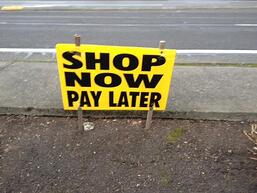 Sadly, when faced with the annoying and often
Sadly, when faced with the annoying and often 
 In a bankruptcy, you will eliminate most of your debt or you will be able to schedule a repayment plan that will fit your budget, given your dire financial circumstances.
In a bankruptcy, you will eliminate most of your debt or you will be able to schedule a repayment plan that will fit your budget, given your dire financial circumstances.
